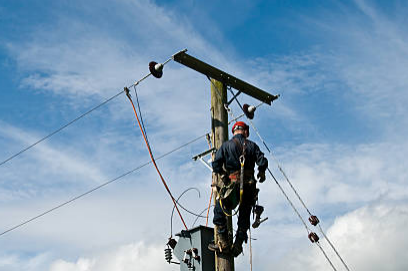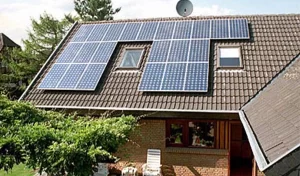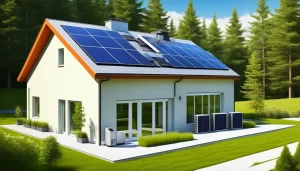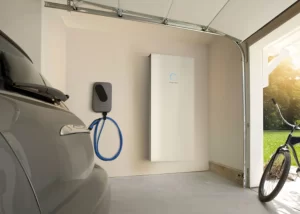The Future of Storing UPS Energy Solutions: A Comprehensive Guide
In today’s rapidly evolving world, ensuring a reliable power supply is more critical than ever. Businesses and homeowners alike are increasingly turning to innovative technologies to safeguard their operations and lives from unexpected power interruptions. One such technology that has gained significant traction is storing UPS energy solutions. This article delves into what these solutions are, why they matter, and how they are shaping the future of energy management.
Understanding Storing UPS Energy Solutions
At its core, storing UPS (Uninterruptible Power Supply) energy solutions involve the use of advanced battery storage systems designed to keep electrical systems running smoothly during outages or power fluctuations. Unlike traditional UPS systems that provide instant backup power, modern energy storage solutions go a step further by storing excess energy for future use.
Why Storing UPS Energy Solutions Matter
- Enhanced Reliability: One of the primary benefits of storing UPS powersolutions is their ability to enhance reliability. In sectors where continuous power is crucial, such as data centers or healthcare facilities, even a brief interruption can have serious consequences. By storing energy, these systems ensure that there’s always a backup ready to kick in when needed, providing an extra layer of security against power disruptions.

- Cost Efficiency: Energy storage solutions can also lead to significant cost savings. Traditional UPS systems typically require a constant supply of energy, which can be expensive. By utilizing stored energy, businesses can reduce their reliance on the grid, potentially lowering their energy bills. Additionally, many regions offer incentives for adopting energy storage technologies, further reducing costs.
- Environmental Benefits: With increasing concerns about environmental sustainability, storing UPS powersolutions offer a greener alternative to traditional power backup methods. By integrating renewable energy sources such as solar or wind power, these systems can store excess energy during peak production times and use it during periods of high demand. This not only reduces reliance on fossil fuels but also helps decrease greenhouse gas emissions.
How Storing UPS Energy Solutions Work
Modern storing UPS power solutions use a combination of advanced battery technologies and smart management systems. The process typically involves several key components:
- Battery Storage: The core of any storing UPS energy solution is its battery storage system. These batteries, often lithium-ion or lead-acid, are capable of storing large amounts of energy for extended periods. Advances in battery technology have made these systems more efficient, reliable, and longer-lasting.
- Energy Management Systems: Energy management systems (EMS) play a crucial role in optimizing the use of stored energy. They monitor energy consumption patterns, predict future needs, and manage the distribution of stored energy to ensure that power is available when and where it’s needed most.
- Integration with Renewable Energy Sources: To maximize the benefits of energy storage, many systems are designed to integrate with renewable energy sources. This setup allows for the efficient capture and storage of excess energy generated from solar panels or wind turbines, which can then be used during periods when renewable generation is low.
The Future of Storing UPS Energy Solutions
As technology continues to advance, the future of storing UPS power solutions looks promising. Several trends are shaping the industry:
- Increased Adoption of Smart Technologies: Smart technologies are becoming increasingly integral to energy storage solutions. With the rise of the Internet of Things (IoT) and artificial intelligence, future UPS systems will likely feature even more sophisticated energy management capabilities, further enhancing efficiency and reliability.
- Growing Focus on Sustainability: As global awareness of environmental issues grows, there is a strong push towards more sustainable energy solutions. The integration of storing UPS powersolutions with renewable energy sources will become more prevalent, aligning with broader sustainability goals and reducing overall carbon footprints.
- Enhanced Battery Technologies: Ongoing research and development in battery technologies promise to deliver even more efficient and longer-lasting storage solutions. Future UPS systems will benefit from advancements in battery chemistry, potentially leading to lower costs and improved performance.
Conclusion
Storing UPS energy solutions represent a significant advancement in the quest for reliable and efficient power management. By enhancing reliability, offering cost efficiencies, and supporting environmental sustainability, these solutions are becoming a cornerstone of modern energy strategies. As technology continues to evolve, we can expect even greater innovations in energy storage, further solidifying the role of storing UPS power solutions in our everyday lives.
Investing in these advanced systems not only provides a safeguard against power interruptions but also contributes to a more sustainable future. Whether you’re a business owner or a homeowner, understanding and embracing storing UPS energy solutions is a proactive step towards ensuring a stable and eco-friendly power supply for years to come.
Contact us
- Email:[email protected]
- Tel: +86 13651638099
- Address: 333 Fengcun Road, Fengxian District, Shanghai
Get A Quote Now!
Related product links are available directly
Site storage products:Site storage products 归档 – (energystoragecontainer.com)
Lithium Battery:Lithium Battery 归档 – (energystoragecontainer.com)
Read more

How to Choose Outdoor Mobile Power Supply Correctly?
Outdoor portable power stations are indispensable for camping, road trips, and emergencies, ensuring a reliable energy source for devices and appliances.

Solar Revolution: How Home Systems Can Light Up Ecuador’s Energy Future
Ecuador’s energy crisis, driven by its worst drought in 61 years, has revealed the vulnerabilities of a hydropower-dependent energy system. With water levels at hydropower stations plummeting and energy shortages reaching 1080 megawatts, the nation faces significant economic and social challenges.

Lighting up the Future: How Home Inverter Energy Storage Illuminates Ecuador’s Energy Darkness
Ecuador is facing a severe electricity crisis, driven by historic drought conditions that have crippled the nation’s hydroelectric capacity, which accounts for over 70% of its energy supply.

New Power of Smart Home: Three Major Life Improvement Advantages of Photovoltaic Energy Storage System
With the rapid adoption of solar battery storage technology, the concept of a whole house intelligent photovoltaic energy storage system is becoming increasingly relevant in modern households.
